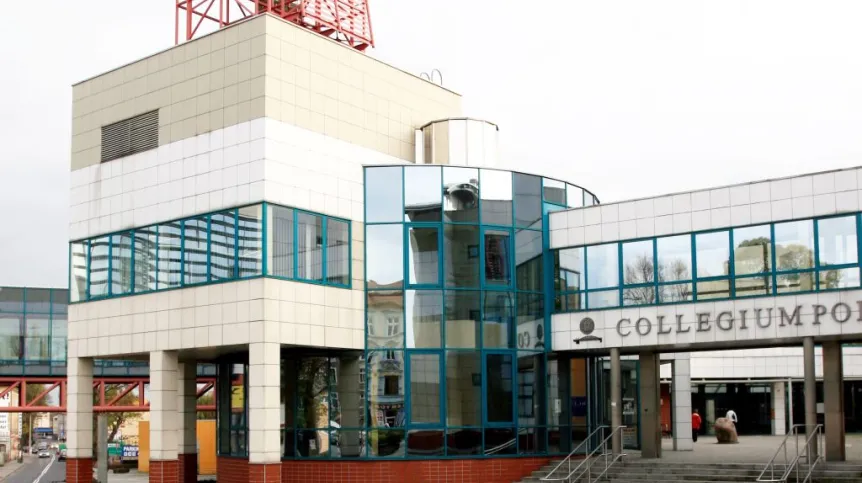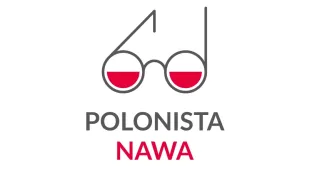
Authorities of Adam Mickiewicz University in Poznań and the European University Viadrina in Frankfurt an der Oder have made another step to transform the Collegium Polonicum in Słubice into a Polish-German faculty of both universities.
Brandenburg authorities have declared financial support for this idea - told PAP spokeswoman of Adam Mickiewicz University Collegium Polonicum in Słubice, Ewa Bielewicz-Polakowska.
Collegium Polonicum is a joint scientific institution of both universities, formally in the structure of both universities. In Europe so far there is no faculty common to two universities in two countries.
According to the authorities of both universities, the experiment of establishing such faculty in Słubice should not only deepen Polish-German cooperation, but also contribute to the development of studies conducted on a global level.
"Minister of Science, Research and Culture of Brandenburg, Prof. Sabine Kunst declared nearly 6 million zlotys (1.5 million euros) for creating the faculty. Both our universities are now counting on a constructive attitude of the Polish government" - said the director of Collegium Polonicum, Krzysztof Wojciechowski.
Establishment of the faculty is associated with the need to create at least 30 new jobs, including 10 additional professorships devoted to the latest areas of the humanities: social media, migration, virtual reality and the cultural, economic and legal consequences of digitisation.
"To achieve this scientific level, the Collegium Polonicum annual budget needs to be higher by approx. 8 million zlotys (2 million euros)" - said Wojciechowski.
A group of experts from Adam Mickiewicz University in Poznań and the Viadrina decided that the faculty will be named International European and Regional Studies. It is to be a continuation and expansion of existing, close cooperation between the Polish and German universities.
"Establishment of a joint faculty opens new perspectives not only in research but also in teaching. We hope that the new joint courses of both universities will attract candidates not only from the region but from across Europe" - said Wojciechowski.
Four working groups are now engaged in the establishment of the faculty, dealing with the profile of future research, teaching, organizational, legal and financial issues. Partners assume that the implementation of the project will not require any changes in the terms of the Collegium Polonicum agreement or laws on higher education in both countries.
Bielewicz-Polakowska explained that most organizational and legal changes will have to be made at the level of both universities. "However, the unprecedented nature of the project requires the support of the political factor, both in financial as well as organizational-legal aspect" - added the spokeswoman.
Education in the College Polonicum is now carried out on eight fields of study, studied by almost 600 students. 25 percent of them are foreigners: from Ukraine, Germany, Russia, Belarus, Kazakhstan, Iraq, China, France, Spain, Lithuania, Slovakia, Vietnam, Serbia, Britain and Pakistan.
College Polonicum in Słubice also recruits students at Viadrina, majoring in Culture and History of Central and Eastern Europe and the postgraduate course Protection of European Cultural Heritage.
More than 200 students started the first year of full-time and part-time studies at the Collegium Polonicum in the academic year 2014/15. In Słubice, Adam Mickiewicz University offers courses in National Security, Polish Philology for foreigners, and together with the European University Viadrina also German Philology, Law, Cultural Studies in the field of intercultural communication, English Studies and International Relations.
Collegium Polonicum began its activity in 1991, and the first students entered the walls of the Słubice college in the academic year 1993/94. According to the Agreement of 2 October 2002, the responsibility for the scientific institution in Słubice lies at the same time with the Republic of Poland and the State of Brandenburg.
The main task of the Collegium Polonicum is to promote scientific and cultural cooperation between Poland and Germany. Since its beginning, the college has educated more than 3,000 people. Over the years, it has become an integral part of the life of small border town Słubice and the region, and the two countries. It is a meeting place for politicians and a conference venue.
The inauguration of the academic year 2013/14 was attended by the presidents of Poland Poland Germany, Bronislaw Komorowski and Joachim Gauck. During the academic year, the Collegium Polonicum hosts dozens of educational, scientific, cultural and cross-border events.
PAP - Science and Scholarship in Poland
mmd/ par/
tr. RL













